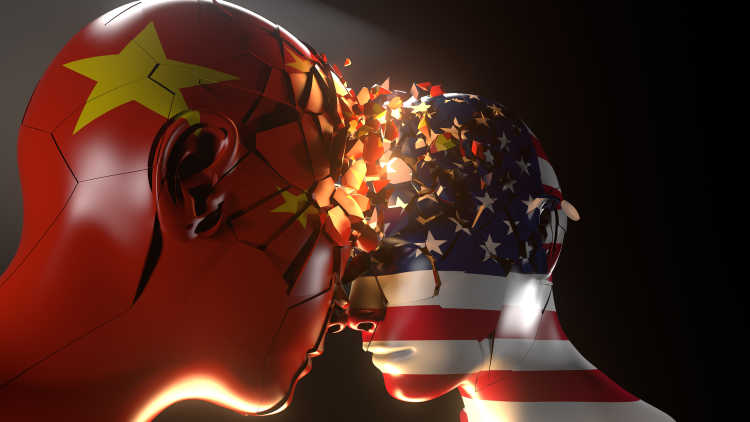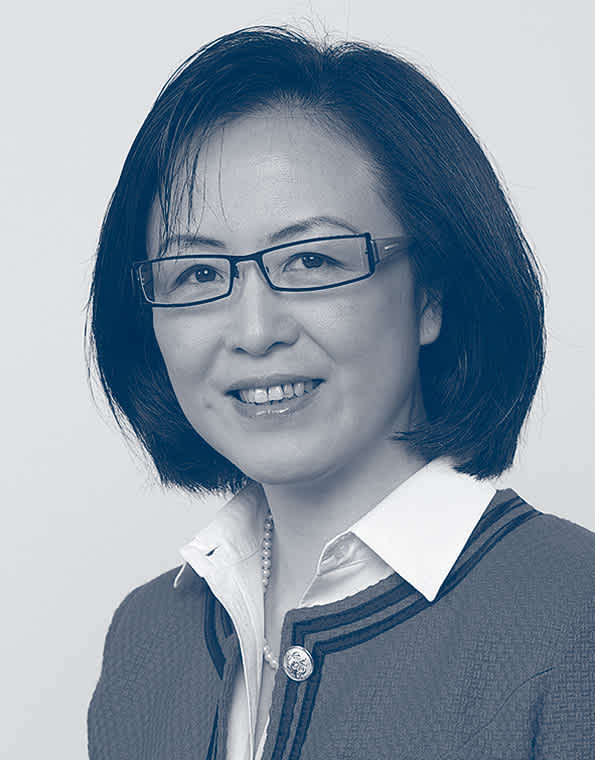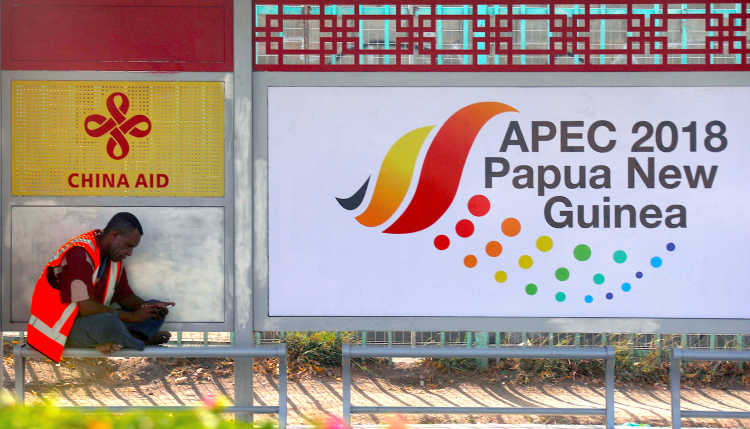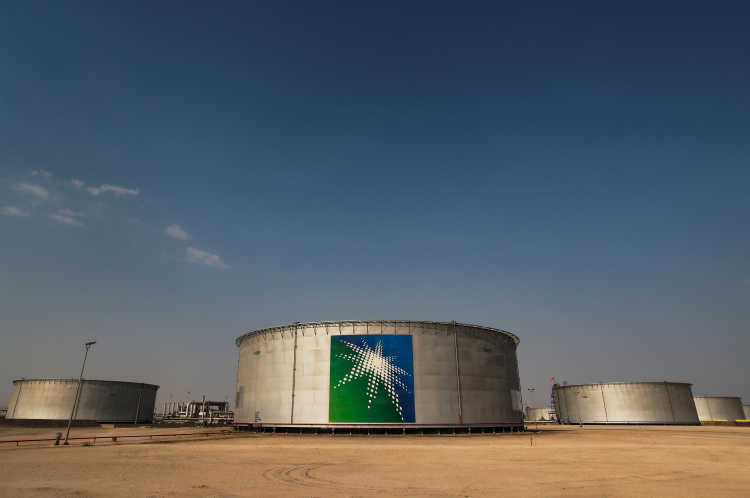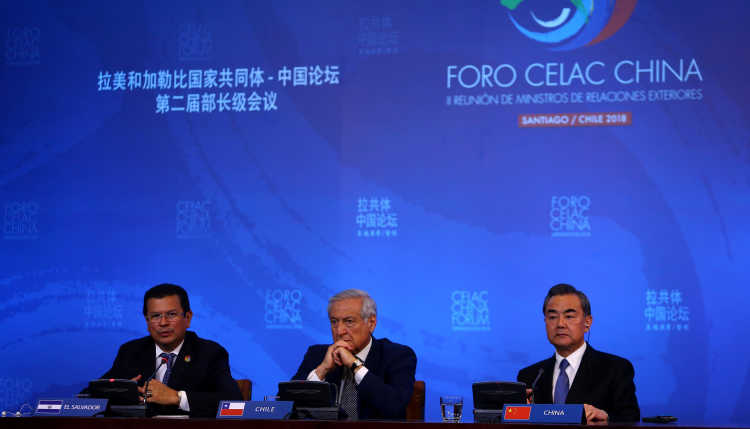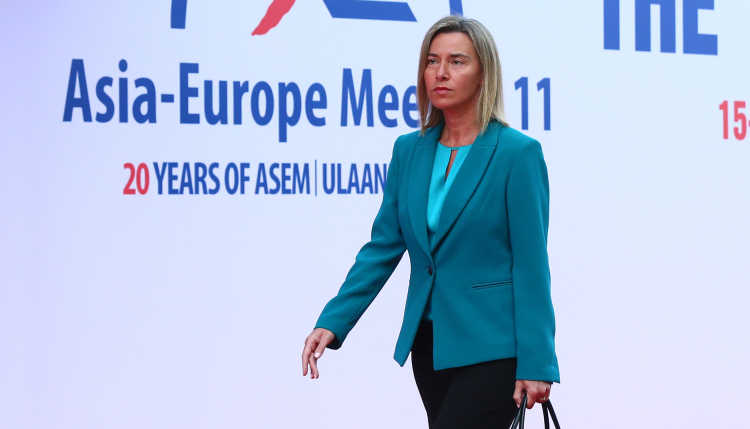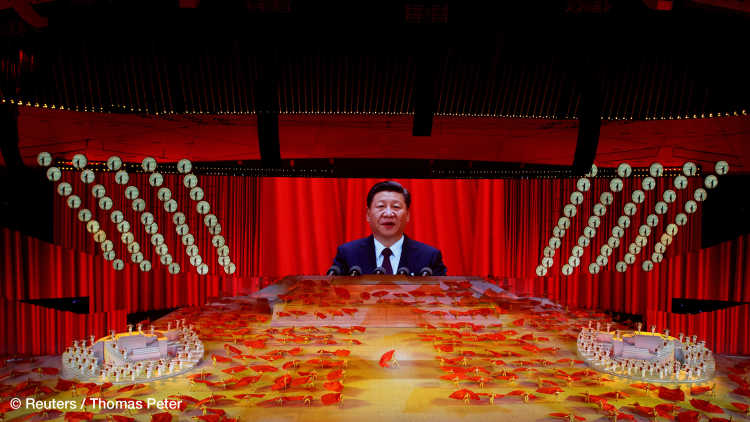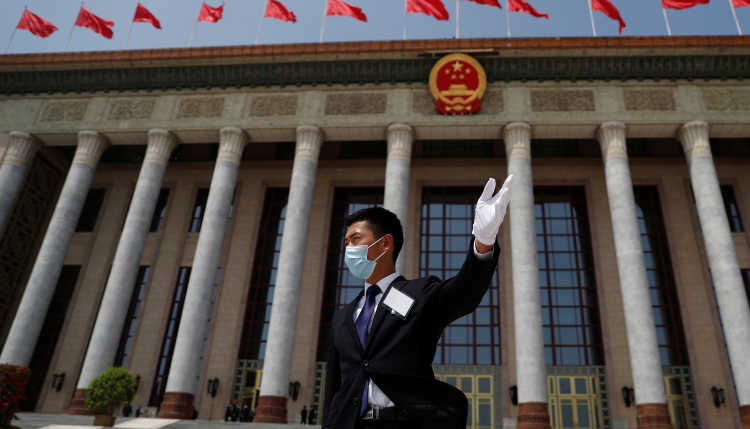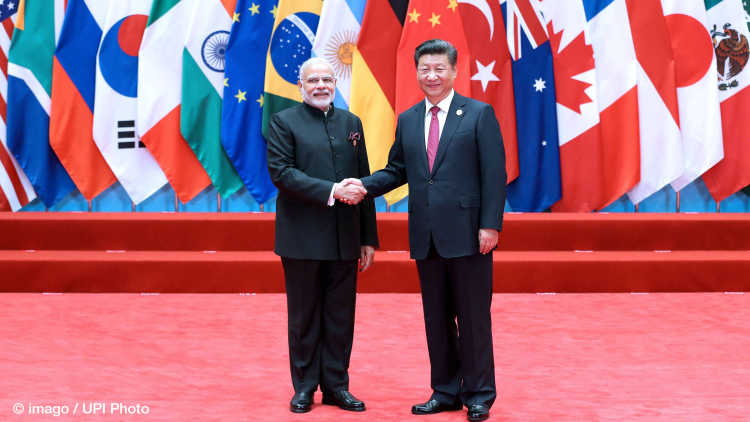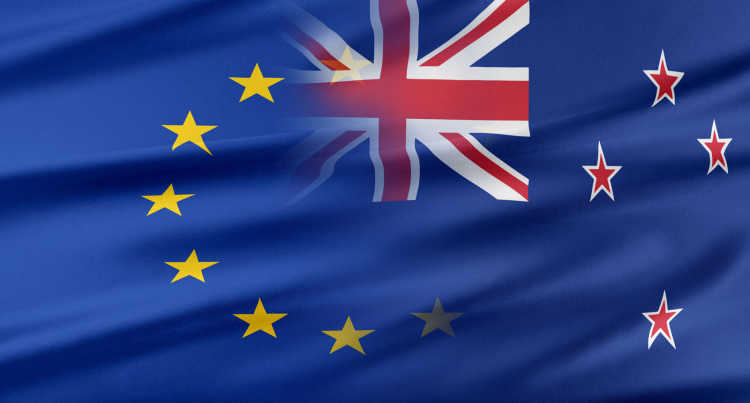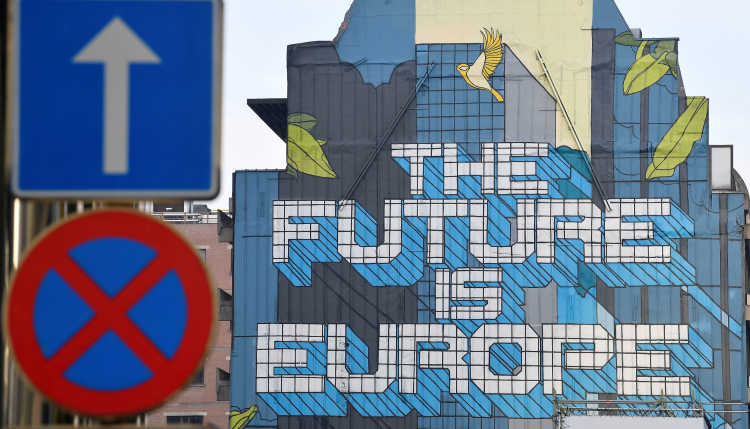- Startseite
- Publikationen
- GIGA Focus
- The European Union's New Rival – China
GIGA Focus Asien
China als neuer Rivale der Europäischen Union
Nummer 7 | 2019 | ISSN: 1862-359X
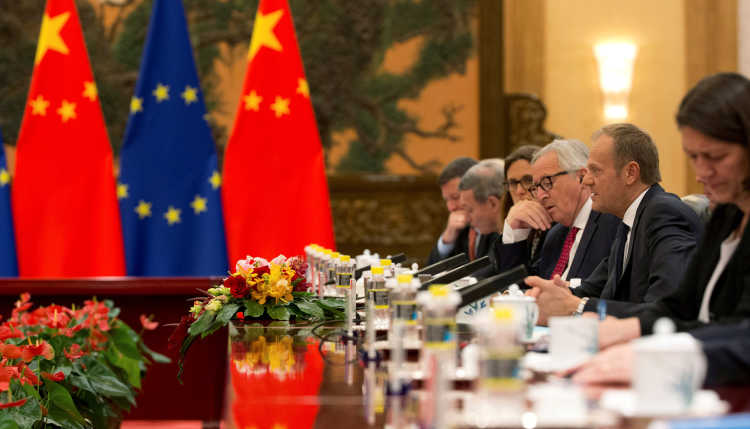
Die Beziehungen zwischen der Europäischen Union (EU) und China waren mit einer gemeinsamen strategischen Agenda aus dem Jahr 2013 durchaus optimistisch ausgerichtet. Seit die EU im März 2019 dazu übergegangen ist, China auf einigen Feldern als „systemischen Rivalen“ zu beschreiben, hat sich dies verändert. Während es der EU sonst eher schwerfällt, sich auf eine gemeinsame Haltung gegenüber China zu verständigen, haben sich die EU-Mitgliedsländer unter dem Druck der Vereinigten Staaten von Amerika (USA), die harte Linie der Regierung unter Donald Trump gegenüber der Volksrepublik China mitzutragen, diesmal in Rekordgeschwindigkeit geeinigt. Das neue Führungsteam der EU sieht sich zwischen China und den USA vor einer schwierigen Gratwanderung.
Der Hauptgrund für die veränderte Haltung der EU liegt in der enttäuschten Erwartung, China werde seine Wirtschaft öffnen und sich auf gleiche Wettbewerbsbedingungen einlassen. Auch die von chinesischer Seite mittlerweile über sechs Jahre verschleppten Verhandlungen über eine bilaterale Investitionsvereinbarung sind ein weiterer Grund.
Eine zentrale Rolle in der Verständigung über die neue Position spielte eine Reihe von Schlüsselakteuren der EU, darunter mit China befasste EU-Kommissare, Mitglieder des EU-Parlaments und ehemalige EU-Botschafter in Beijing. Trotz langjähriger Differenzen zwischen EU-Mitgliedsstaaten im Umgang mit China wurde so sehr schnell Einigkeit erzielt.
Ausschlaggebend war nicht zuletzt der Druck von Seiten der Trump-Regierung, die – anders als die EU – China als „strategischen Rivalen“ betrachten. Wie sich abzeichnet dürfte die neue EU-Führung unter Ursula von der Leyen die härtere Gangart aufrechterhalten und im Verhältnis zu China auf mehr Reziprozität und strategische Autonomie setzen.
Zugleich arbeiten die EU und China im außenpolitischen Bereich weiterhin gedeihlich zusammen, insbesondere gegenüber dem Iran, aber auch in globalen Fragen wie dem Klimawandel und der Unterstützung des multilateralen Handelssystems.
Fazit
Die EU wird mehr tun müssen, um China, das sich zu einem ernstzunehmenden Rivalen entwickelt, besser zu verstehen. Entscheidungsträger in der EU sollten mehr Zeit aufwenden, um sich mit China zu befassen und um sich auf eine alle Politikfelder umfassende Herangehensweise zu verständigen. Die EU sollte mit gleichgesinnten Partnern überall dort zusammenarbeiten, wo gemeinsame Interessen im Umgang mit China bestehen.
False Hopes
Many observers, including the Chinese authorities, were surprised that European Union leaders agreed in March 2019 a document labelling the Asian country “a systemic rival […] promoting alternative models of governance” (European Commission 2019a). From the accession of China to the World Trade Organization in 2001 up until the election of Xi Jinping as General Secretary in 2012, the EU hoped that China’s increasing global exposure would gradually lead to a market economy and more democratic political system. Mentioning the need for “reciprocity” was seen as a pretext for protectionist measures.
Six years after President Xi started his tenure, in 2019, the EU stated it needed “a more realistic, assertive, and multi-faceted approach to ensure that relations with China were fair, balanced, and mutually beneficial” (European Commission 2019a). This should involve not just trade, investment, maritime security, and human rights, but industrial and competition policy, procurement, data, and connectivity. As Reinhard Bütikofer, the new chair of the European Parliament’s (EP) Delegation for Relations with China, told the author: “The penny seems to have dropped that China will not be moving towards a liberal democratic society and market economy anytime soon.”
This new robust approach followed years of mostly unsuccessful EU pressure on China at summits and ministerial meetings to open its markets, refrain from intellectual property theft, stop enforced technology transfers, and accept international debt, labour, and environmental standards in the construction of infrastructure projects. It has taken the EU almost two decades to reach this position, a period many would characterise as marked by ignorance, naiveté, and division on the EU side. The EU had too few China experts; many believed that it would become more liberal as it became richer; and member states were divided on how to deal with China. EU divisions are exemplified by the regular meetings between a mix of 16 member and non-member states from the Western Balkans with China. Started in 2012, the annual summits continue even though there has been little to show in terms of new trade and investment. This year Greece joined the group, which is now known as 17+1 (Kavalski 2019).
It remains to be seen how the EU will implement the new approach. Much will depend on the outcome of the current bilateral investment treaty negotiations that have been dragging on for six years now. The Chinese attitude to WTO reform will also be critical, as this entails discussion of e-commerce, data protection, and industrial subsidies. An unpredictable factor further complicating Sino–European cooperation on reforming the WTO, in whose survival both trading blocs have an unambiguous interest, is the ongoing United States–China trade negotiations. The conclusion of a deal resolving the trade conflict would further weaken the role of the WTO in regulating global trade, potentially encouraging China to double down on its approach to strike bilateral (Belt and Road Initiative, BRI) deals with trading partners instead.
China’s Rise
Since the establishment of diplomatic relations between the EU and China in 1975 there has been a steady shift in the balance of the relationship. In the first two decades thereafter, economic leverage was overwhelmingly on the EU side. But this began to change with the admission of China to the WTO in 2001, a move that had been supported strongly by the EU. Since then the economic balance has steadily shifted in China’s favour, and it has re-emerged as a major global power – arguably one of the most fundamental geopolitical changes of the past half-century.
Between 1995 and 2006, the EU issued several communications on China – largely welcoming its economic development, offering advice on numerous issues, and stressing the opportunities for mutual cooperation. In 2003, China issued a policy paper on the EU – the first time it had issued a foreign policy document covering a specific region or country. It was remarkably positive in tone, stressing the benefits that EU integration had brought to the continent and the wider world. The same year both sides agreed on a comprehensive strategic partnership, and in 2013 an ambitious “2020 Strategic Agenda for Cooperation” was launched (EEAS 2013).
In April 2014, China issued its second policy paper on the EU – again stressing that it viewed the latter as a key strategic and cooperation partner, but warning the supranational body not to interfere in its core interests including Taiwan and Tibet (China Daily 2014). That year, President Xi made a visit to the EU’s institutions – praising the importance of the relationship based on annual summits, started in 1998, high-level dialogues on foreign and economic policy, and people-to-people exchanges, as well as on consultations in more than 60 different fields. These dialogues vary in frequency and substance, but neither side has expressed a desire to reduce them.
The EP, often a critic of the EU’s policy vis-à-vis China, has regular exchanges with the National People’s Congress, and there are many links between the various political groups in the EP and Chinese politicians. In July 2019 the Parliament passed a highly critical resolution on China’s handling of the pro-democracy demonstrations in Hong Kong, prompting an unusually sharp response from Beijing (Euractiv 2019). In addition to the official dialogues, there are also countless academic, think tank, and business conferences as well as people-to-people exchanges.
Cooperation has grown in almost every sector from foreign and security policy, customs and finance, to agriculture, science and technology, energy, ocean governance, tourism, and culture and education. China and the EU have also cooperated well on the Iran nuclear deal and within the United Nations Contact Group on Piracy off the coast of Somalia. There has also been increased cooperation on Afghanistan, North Korea, the Middle East, and Africa.
Trade and Investment
But it is trade and investment that are at the heart of the relationship. The EU is China’s biggest trade partner, while the latter is the former’s second-largest one. Trade in goods amounts to EUR 1.5 billion each day. The EU exported EUR 198 billion of goods to China in 2017, and took EUR 375 billion in return. On services, the EU had a surplus exporting EUR 45 billion and taking EUR 28 billion in return. Like the US, the EU has complained about the trade deficit, but until 2019 did not take decisive action on it.
There has been a transformation in the investment field. For many years European companies invested heavily in China, with stocks reaching over EUR 100 billion in 2014. Two years later Chinese investment in the EU outpaced European investment in the Asian country for the first time, marking a dramatic shift in economic performance, and leading to concern about the implications of China targeting specific industrial sectors. In 2018, however, Chinese foreign direct investment (FDI) in the EU fell by 40 per cent to EUR 17.3 billion compared to 2017 levels, and down over 50 per cent from peak levels in 2016 (DG Trade 2019). Most Chinese investment has traditionally targeted the United Kingdom, Germany, and France, leaving the 12 EU member states participating in the aforementioned 17+1 format increasingly frustrated (MERICS 2019).
The Change in the EU’s Attitude
The change in the EU’s attitude came about after many years of frustration that China had not followed through on promises to move towards a level playing field as regards trade and investment. Repeatedly voiced European concerns about lack of market access, unfair procurement rules, intellectual property theft, and enforced technology transfers for joint ventures went unanswered (Geeraerts 2019).
An important event was the publication of the influential German federal industrialists’ association (BDI) paper in January 2019 pointing to past failures and arguing for a new approach based on reciprocity. The BDI called for a strengthened economic policy framework for the EU single market, arguing that Chinese firms should have to accept the liberal market economy regulations of the supranational body if they want to be active in Europe (BDI 2019). The umbrella European business organisation (Business Europe) would also urge a more assertive approach having received critical feedback from its members. The business lobbying had an impact on those commissioners dealing with trade, investment, competition, and industrial policy. A number of MEPs – including Jo Leinen, the former head of the Delegation for Relations with China – also argued for a tougher approach towards the Asian country.
In addition to business lobbying, there were concerns about China’s behaviour in the South China Sea, with it disrespecting the ruling of the Permanent Court of Arbitration in The Hague vis-à-vis territorial claims. Concerns about the BRI not following international norms on transparency and sustainability were equally widespread. The US also applied pressure on the EU and its member states not to accept Huawei technology, and not to support the BRI. According to one senior EU official, “the US position was pretty blunt – you are either with us or against us in dealing with China.”
As a result of these developments, in March 2019 the European Commission (EC) and the European External Action Service (EEAS) issued a new policy paper in advance of the European Council proposing that the EU should pursue three objectives:
Deepen its engagement with China to promote common interests at the global level;
Robustly seek more balanced and reciprocal conditions governing the economic relationship;
Adapt to changing economic realities and strengthen the EU’s own domestic policies and industrial base.
The paper argued that given China’s economic power it should no longer be regarded as a developing country. As a key global actor and leading technological power, its increasing presence in the world – including in Europe – should be accompanied by greater responsibilities for upholding the rules-based international order, as well as greater reciprocity, non-discrimination, and openness in its political system. China’s publicly stated reform ambitions should translate into policies or actions commensurate with its role and responsibilities (European Commission 2019a).
Partner and Rival
The paper emphasised that China is, simultaneously, in different policy areas “a cooperation partner with whom the EU has closely aligned objectives, a negotiating partner with whom the EU needs to find a balance of interests, an economic competitor in the pursuit of technological leadership, and a systemic rival promoting alternative models of governance” (European Commission 2019a). It was this phrase “systemic rival” that captured the headlines, as the EU had never used such language before about any strategic partner. The paper was by no means a frontal attack on China: it merely sought to provide a balanced assessment of the relationship.
It welcomed China’s support for the Iran nuclear deal and the Paris climate change agreement, but criticised it for financing so many coal-fired power stations under the BRI. It also appreciated China’s role in counter-piracy operations in the Gulf of Aden, in pressing for the denuclearisation of North Korea, and in supporting peace efforts in Afghanistan. Continuing, it then stated that China’s support of multilateralism was “sometimes selective and based on a different understanding of the rules-based international order” (European Commission 2019a). It acknowledged China’s progress on economic and social rights, but equally criticised the situation of the Muslim minority in Xinjiang and the continuing crackdown on human rights lawyers and defenders.
The paper also acknowledged that Chinese investments abroad had contributed to economic development, but often neglected socio-economic and financial sustainability as well as good governance. Furthermore, European companies faced the lack of a level playing field when competing in third countries’ markets, with Chinese companies enjoying access to state-backed loans and export credits at preferential terms – applying corporate and labour standards rather different from multilateral ones. According to the EC’s trade department, China maintains the highest number of identified market access barriers among EU partners.
In the economic sphere, the paper proposed changing the EU’s approach as a result of China’s proactive and state-driven industrial and economic policies. An example hereof is “Made in China 2025,” which aims at developing domestic champions and helping them to become global leaders in strategic high-tech sectors such as artificial intelligence, pharmaceuticals, and information technology. This is part of efforts to upgrade China’s manufacturing capabilities across the board. The paper furthermore suggested that WTO reform and the rapid conclusion of the bilateral investment agreement negotiations would be key issues in judging China’s willingness to accept a more balanced and reciprocal economic relationship.
The paper concluded by pointing to the need to pay more attention to China, to work together, and to strengthen the EU’s own domestic policies and industrial base. It then invited the EC to endorse the following 10 actions:
Strengthen cooperation with China across all three pillars of the UN Charter: human rights, peace and security, and development;
Press China to peak its emissions before 2030, in line with the goals of the Paris Agreement;
Deepen engagement on peace and security, building on the positive cooperation on Iran;
Work with China to promote international standards in their respective connectivity strategies;
Call on China to deliver on existing joint EU–China commitments, including reforming the WTO (in particular on subsidies and forced technology transfers) and concluding bilateral agreements on investment by 2020;
Open up procurement opportunities in China by acceding to the International Procurement Instrument by the end of 2019;
Take into account labour and environmental standards on the participation of foreign bidders and goods in the EU procurement market;
Change EU laws to deal with the distortive effects of foreign state ownership and state financing in the internal market;
Develop a common EU approach to the security of 5G networks;
Implement swiftly the regulation on the screening of FDI to detect and raise awareness of security risks posed by foreign investment in critical assets, technologies, and infrastructure (European Commission 2019a).
The European Council, composed of the EU’s 28 national leaders, reacted favourably to the Commission paper, adopting conclusions which stated that the EU needs to pursue a strategic course of action and increase its capacity to act autonomously to safeguard its interests, uphold its values and way of life, and help shape the global future. In a world where common rules and standards are increasingly questioned, it will be vital to promote a level playing field, including in the area of trade. This means ensuring fair competition within the EU and on the global stage, promoting market access, fighting unfair practices, extraterritorial measures, and security risks from third countries (European Council 2019a).
China’s Reaction
China was taken aback by the change in the EU’s approach. As one diplomat at the Chinese mission to the EU remarked to the author, “we never expected that the EU would use such language against a strategic partner.” The mission was tasked with ascertaining why this change occurred, as they had no forewarning. The ambassador, speaking at a public event just a few days after the publication of the Commission report, tried to make light of the “rival” tag by suggesting rivalry was for sporting opponents not two strategic partners cooperating on global affairs. The senior EU official dealing with China responded that while the supranational body valued the strategic partnership, it could no longer ignore the fact that the country had repeatedly failed to live up to summit commitments on the trade front.
The Chinese media were also unsure how to respond to this tag. Initially there was pushback, criticising the EU for following President Trump. This was, however, followed by more nuanced commentary, acknowledging that major global actors sometimes had differences – although rivalry was not a good description of the EU–China relationship (China Daily 2019).
Officially, the Chinese had to recover quickly – as Premier Li Keqiang visited Brussels for the annual summit in early April 2019. Concerned not to have both the US and the EU as enemies concurrently, the Chinese delegation accepted fairly tough EU language in the communique. At the very last minute, the Chinese side agreed to a statement that committed the country to working on strengthening WTO rules on industrial subsidies, on further market access, and on concluding the bilateral investment treaty by 2020 (European Council 2019b).
The US Factor
In formulating its own policy towards China, the EU cannot ignore ongoing developments in the Sino–American relationship. The Trump administration labelled China a strategic rival in 2018, and has sought to enlist its allies in a containment policy towards China. The impact of US pressure has been mixed, with several member states reflecting on whether to sign up to the BRI or to use Huawei technology. Italy notably disregarded US pressure and signed a memorandum of understanding on the BRI, concluded on the occasion of President Xi paying a visit to there earlier this year.
Most EU members are unwilling to engage in a US-led Cold War against China, especially given US tariffs on European industry and the unpopularity of President Trump. But there are longer-term, shared EU–US interests at stake which might be better protected by transatlantic cooperation as regards China. These include the importance of defending liberal democracy and the rule of law, as well as setting the rules for the next industrial revolution – covering sectors from big data, to artificial intelligence, to electric vehicles.
But there are evident differences that suggest a transatlantic consensus on China will be difficult to forge. A growing number of Americans view China as a strategic rival seeking to reduce US power and influence both in Asia and elsewhere. Many US officials and experts now argue in favour of restricting contact with China in research, science and technology, and other sectors in order to protect the US’s position around the world. In contrast, the EU does not view China through a military lens, and the majority view is to recognise the necessity of interdependence and to continue to engage with it across the board – albeit with eyes wide open.
There is a danger that any US decoupling from China would lead to a partial transatlantic one too. Some argue that the relatively free flow of technologies, capital, components, and other critical aspects of the transatlantic economy cannot continue in the same way if one partner is substantially more open to China than the other. The effect in these circumstances would not just be a bifurcation – a China-centred economic order and a Western-centred economic order – but outright fragmentation. The EU will do everything it can to avoid such a choice. Its most likely approach, therefore, will be to work with the US and other like-minded partners (Australia, Canada, Japan, etc.) on an ad hoc basis, building coalitions on different issues such as regulatory frameworks, infrastructure finance, and development aid.
In July 2019 the EU did suggest that it and the US should join forces in countering Chinese attempts to define the technologies of the future. As part of a progress report into EU–US co-operation on trade, the supranational body said that the “strategic case” for the two economies to work together on setting technical standards “has never been greater” – citing concerns about China’s attempts to increase its influence in bodies such as the International Telecommunication Union and the International Organisation for Standardisation. Areas where EU–US cooperation appears promising, according to the report, include robotics, 3D printing, machinery for the oil and gas industry, and self-driving cars (European Commission 2019b).
No Magic Bullet
Moving forwards, there is no magic bullet in dealing with China. The EU has to recognise that it is dealing with a formidable rival with different values and aims. It needs a comprehensive approach to China, covering all sectors from trade and industrial policy to foreign and security policy plus human rights. Much will depend on whether the EU can make progress under its new leadership in delivering a more solid economic base that allows it to compete effectively with China, taking into account that the country’s economic, technological, military, and even ideological power are going to be far more central issues to deal with in the years ahead.
China should feature much more frequently on the agenda of the Foreign Affairs Council and of the European Council. EU leaders must continue to sing from the same hymn sheet, as only a united EU can stand up to China. EU policymaking in the field of foreign and security policy should no longer be subject to unanimous agreement, but rather to a qualified majority vote – as unanimity has been used by some member states to block resolutions critical of China.
Lastly, the EU should seek ways to work with the US and other partners on China while protecting its own interests. For example, despite differences over WTO reform, it should be possible to identify a number of areas on the trade front – such as investment screening and security aspects of high-tech industries – where the EU could work with the US, Canada, Japan, Australia, and others. The EU could also do more on the maritime security front, especially in the South China Sea – by bolstering the capabilities of the Association of Southeast Asian Nations states and encouraging efforts to agree a code of conduct.
The EU could also partner with Japan on some connectivity projects to demonstrate its commitment to the environmental and financial sustainability of infrastructure ones. This would send a clear message to China about the importance of these principles. The fact that President Trump rarely mentions human rights has, at least temporarily, deprived the EU of its main partner in promoting its normative agenda towards China. But there are other partners who share European liberal values, and so the EU should strengthen cooperation with them.
Fußnoten
Literatur
BDI, The Voice of German Industry (2019), Strengthen the European Union to Better Compete with China, 10 January, https://english.bdi.eu/article/news/strengthen-the-european-union-to-better-compete-with-china/ (8 October 2019).
China Daily (2019), Editorial ‘EU Should Not Be Cowed into Toeing US Line’, 14 March.
China Daily (2014), Full Text of China’s Policy Paper on EU, 2 April, www.chinadaily.com.cn/world/cn_eu/2014-04/02/content_17401044.htm (6 October 2019).
DG Trade (2019), DG Trade Statistics, https://ec.europa.eu/trade/policy/countries-and-regions/countries/china/ (8 October 2019).
EEAS see European External Action Service
Euractiv (2019), China Accuses EU Parliament of ‘Ignorance, Prejudice and Hypocrisy’ over Hong Kong Stance, 19 July, www.euractiv.com/section/china/news/china-accuses-eu-parliament-of-ignorance-prejudice-and-hypocrisy-overhong-kong-stance/ (8 October 2019).
European Commission (2019a), European Commission and HR/VP Contribution to the European Council: EU-China, A Strategic Outlook, 12 March.
European Commission (2019b), EU-U.S. Trade Talks – One Year On, Commission Presents Progress Report, 25 July, http://trade.ec.europa.eu/doclib/press/index.cfm?id=2052 (8 October 2019).
European Council (2019a), European Council Conclusions, 22 March 2019, www.consilium.europa.eu/en/press/press-releases/2019/03/22/european-councilconclusions-22-march-2019/ (8 October 2019).
European Council (2019b), Joint Statement of the EU-China Summit of 9 April 2019, 9 April, www.consilium.europa.eu/media/39020/euchina-joint-statement-9april2019.pdf (8 October 2019).
European External Action Service (2013), EU-China 2020 Strategic Agenda for Cooperation, 27 November, http://eeas.europa.eu/archives/docs/china/docs/eu-china_2020_strategic_agenda_en.pdf (8 October 2019).
Geeraerts, G. (2019), The EU-China Partnership: Balancing between Divergence and Convergence, in: Asia Europe Journal, 7, 3, September.
Kavalski, E. (2019), China’s “16+1” Is Dead? Long Live the “17+1”, in: The Diplomat, 29 March, https://thediplomat.com/2019/03/chinas-161-is-dead-longlive-the-171/ (8 October 2019).
MERICS (2019), Chinese FDI in Europe: 2018 Trends and Impact of New Screening Policies, 6 March, www.merics.org/en/papers-on-china/chinese-fdi-in-europe-2018 (8 October 2019).
Gesamtredaktion GIGA Focus
Redaktion GIGA Focus Asien
Lektorat GIGA Focus Asien
Regionalinstitute
Wie man diesen Artikel zitiert
Fraser Cameron (2019), China als neuer Rivale der Europäischen Union, GIGA Focus Asien, 7, Hamburg: German Institute for Global and Area Studies (GIGA), http://nbn-resolving.de/urn:nbn:de:0168-ssoar-64617-2
Impressum
Der GIGA Focus ist eine Open-Access-Publikation. Sie kann kostenfrei im Internet gelesen und heruntergeladen werden unter www.giga-hamburg.de/de/publikationen/giga-focus und darf gemäß den Bedingungen der Creative-Commons-Lizenz Attribution-No Derivative Works 3.0 frei vervielfältigt, verbreitet und öffentlich zugänglich gemacht werden. Dies umfasst insbesondere: korrekte Angabe der Erstveröffentlichung als GIGA Focus, keine Bearbeitung oder Kürzung.
Das German Institute for Global and Area Studies (GIGA) – Leibniz-Institut für Globale und Regionale Studien in Hamburg gibt Focus-Reihen zu Afrika, Asien, Lateinamerika, Nahost und zu globalen Fragen heraus. Der GIGA Focus wird vom GIGA redaktionell gestaltet. Die vertretenen Auffassungen stellen die der Autorinnen und Autoren und nicht unbedingt die des Instituts dar. Die Verfassenden sind für den Inhalt ihrer Beiträge verantwortlich. Irrtümer und Auslassungen bleiben vorbehalten. Das GIGA und die Autorinnen und Autoren haften nicht für Richtigkeit und Vollständigkeit oder für Konsequenzen, die sich aus der Nutzung der bereitgestellten Informationen ergeben.





